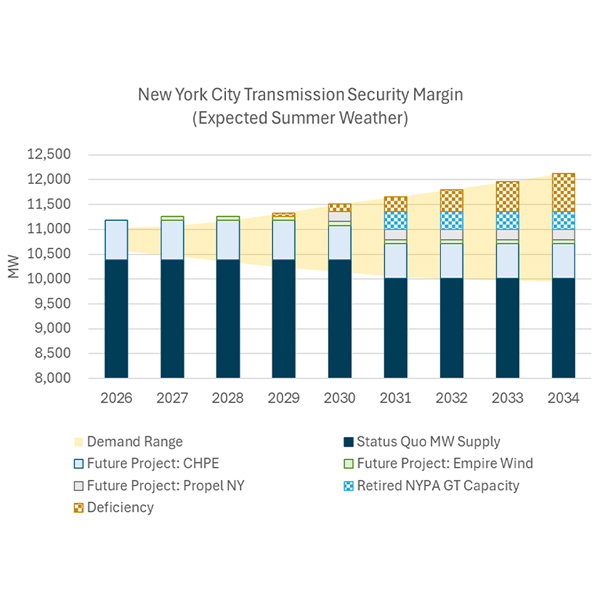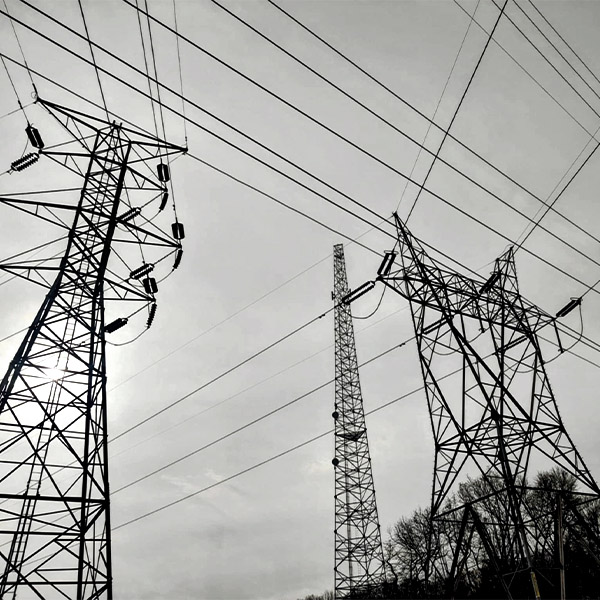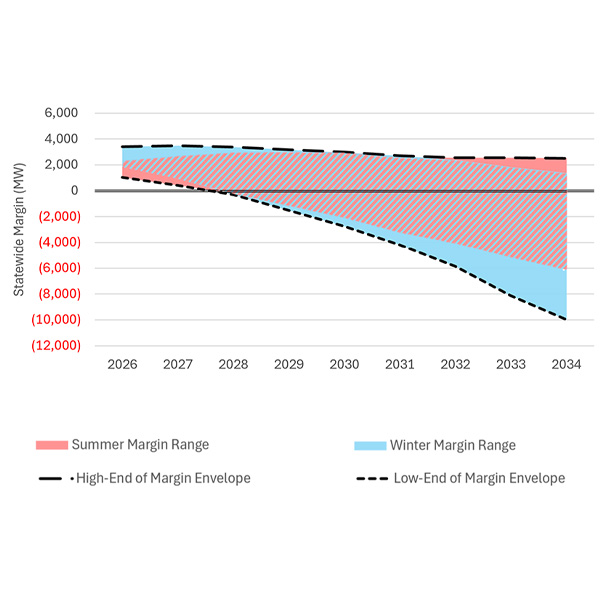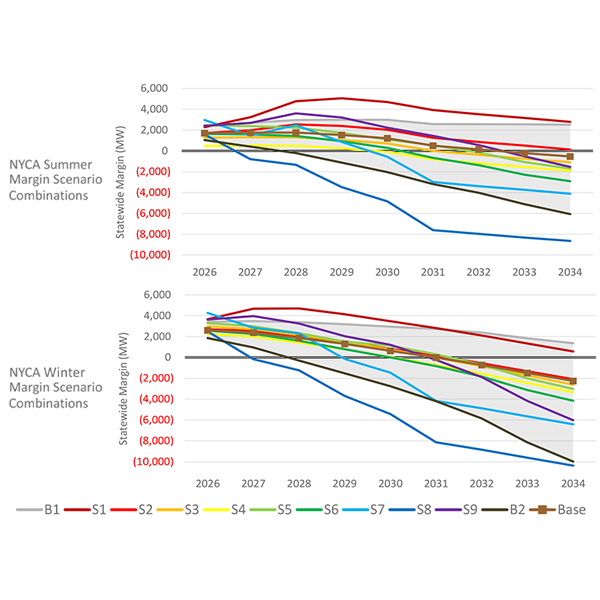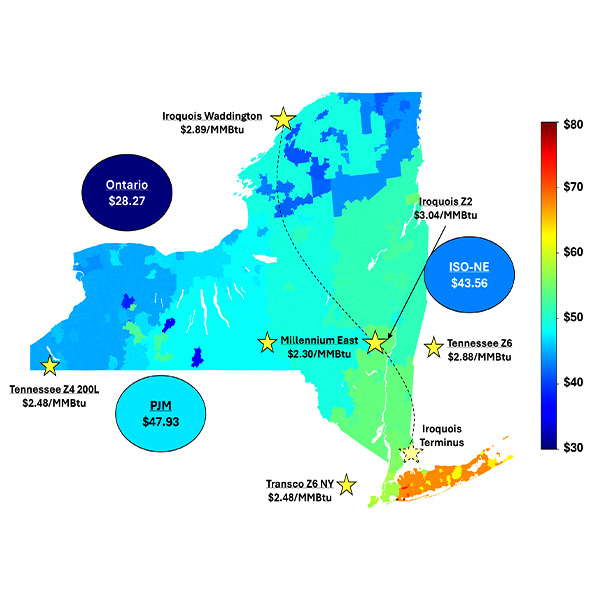Other NYISO Committees
The NYISO Market Monitoring Unit told the Installed Capacity Working Group that more data is necessary to verify the need for out-of-market actions on the part of transmission owners for reliability.
Discussion about potential changes to the NYISO demand curve reset process dominated a recent Installed Capacity Working Group meeting and will likely take up more oxygen in stakeholder meetings throughout the coming year.
Aaron Markham, NYISO vice president of operations, presented the 2025-2026 Winter Capacity Assessment and Winter Preparedness forecasts to the Operating Committee.
NYISO presented the results of Phase 1 of the 2024 Cluster Study process at a special Operating Committee meeting.
NYISO stakeholders debated the validity of the ISO's recent finding of a reliability need in New York City by summer 2026.
NYISO’s consumer impact analysis for the Winter Reliability Capacity Enhancements project found that under the scenarios it considered, installed capacity procurement costs would drop by 15 to 45% depending on locality
NYISO released an updated draft of its Comprehensive Reliability Plan for 2025-2034 that calls for the acceleration of new generation development and preservation of “critical, dispatchable capability.”
NYISO’s draft 2025-2034 Comprehensive Reliability Plan shows a wide range of possible scenarios for resource adequacy in New York, with the most negative outlook showing a deficit of up to 10 GW by 2034.
As NYISO continues its Capacity Market Structure Review, the Market Monitoring Unit used its second-quarter State of the Market report to highlight potential issues with how the ISO forecasts resource availability.
NYISO expects its 2026 budget to be $210 million, $8 million more than the 2025 budget, its CFO told the Budget and Priorities Working Group.
Want more? Advanced Search




